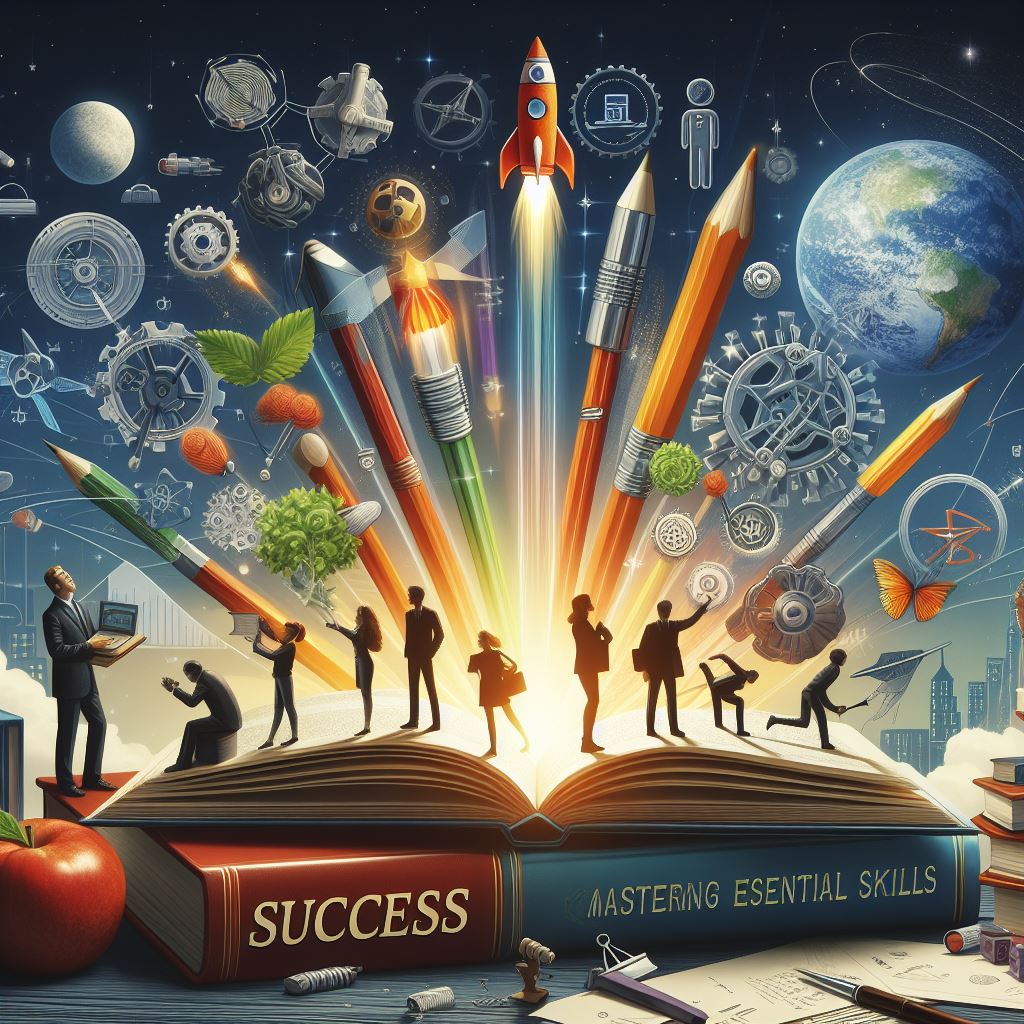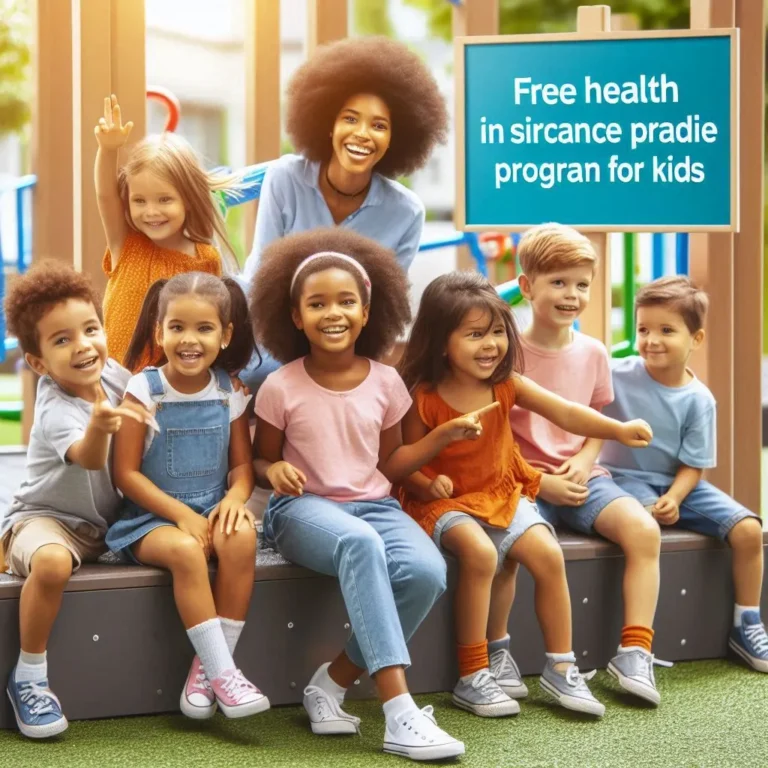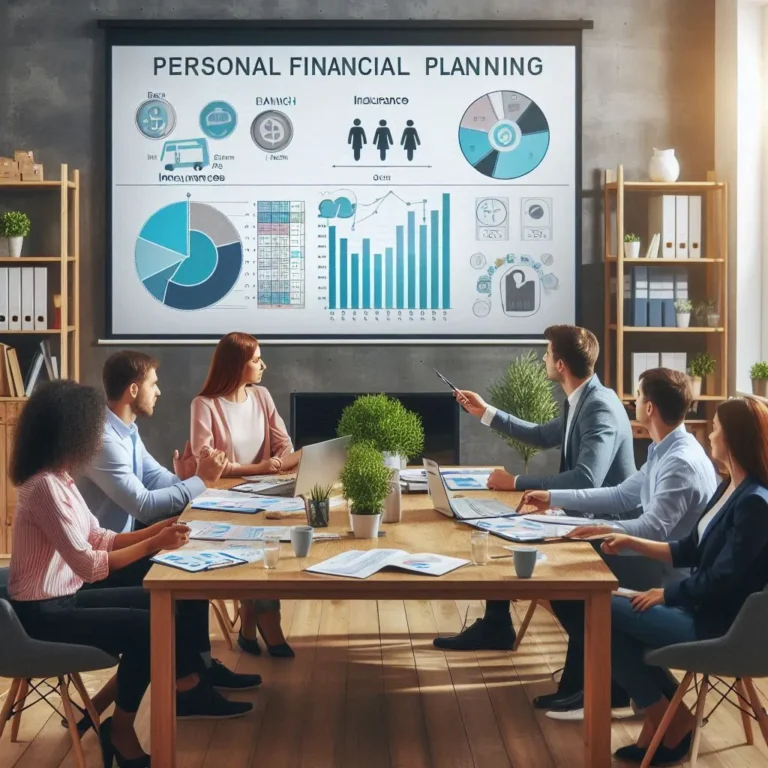Success in the 21st-century : Mastering Essential Skills
Table of Contents
Success in the 21st-century : Mastering Essential Skills
In the short-paced and ever-evolving panorama of the twenty first century, success is no longer defined totally by means of academic achievements or technical prowess.
Instead, individuals should possess a various set of talents to navigate the complexities of cutting-edge lifestyles, work, and society.
These abilities frequently known as 21st-century abilities encompass a extensive range of abilities that empower individuals to thrive in the digital age.
Let’s explore some of the important thing 21st-century talents which might be critical for fulfilment.
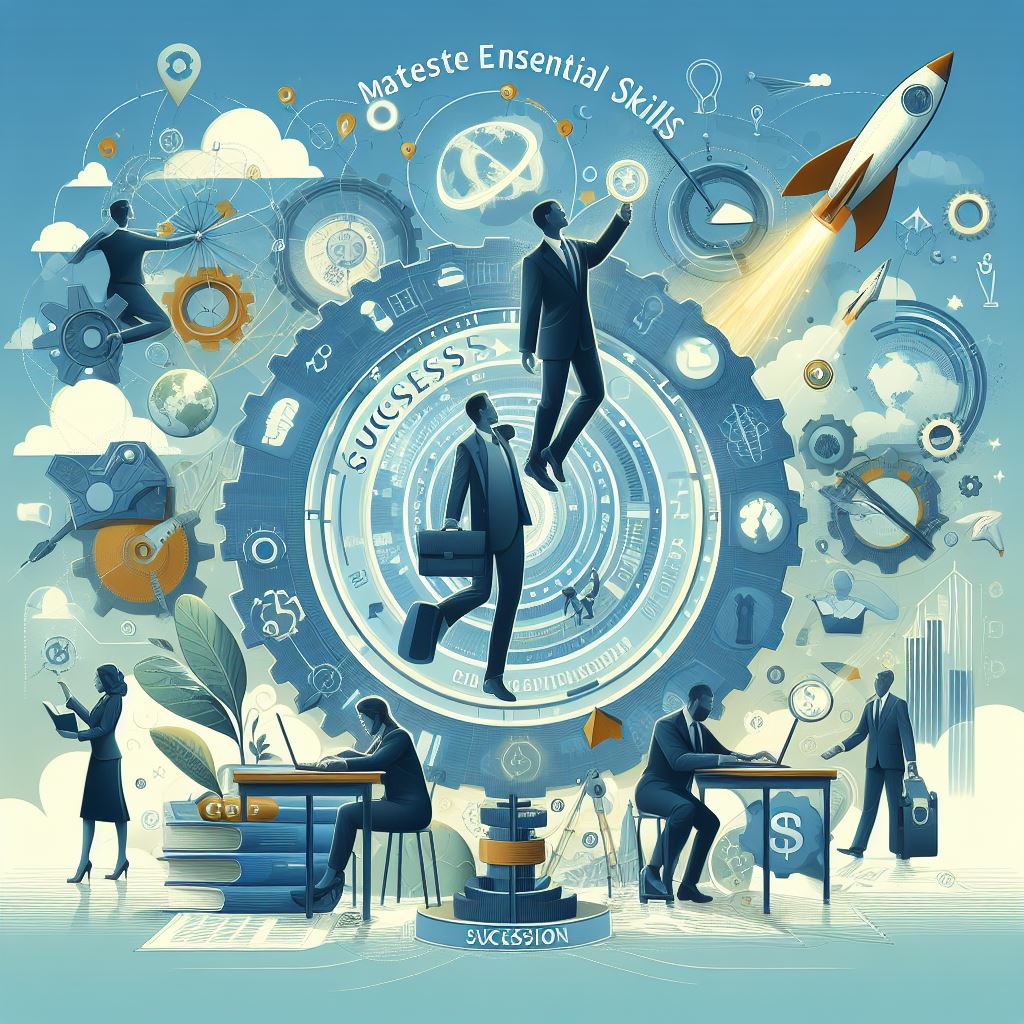
1. Critical Thinking
In ultra-modern digitally-driven international, the capacity to think critically has never been more vital. Critical questioning is going beyond without a doubt memorizing records or regurgitating data; it’s about studying, comparing, and deciphering statistics and ideas to make informed decisions and resolve complex issues.
Understanding the Essence of Critical Thinking
Critical thinking is like a compass in a sea of records overload. With the internet at our fingertips and social media bombarding us with news and opinions, it’s easy to sense beaten and misplaced. Critical wondering equips us with the talents to navigate this tremendous sea of information, assisting us separate truth from fiction, determine credible resources from unreliable ones, and become aware of biases and logical fallacies.
The Components of Critical Thinking
Critical thinking involves numerous key components:
Analysis: Breaking down complex facts into its constituent elements to apprehend its structure and underlying assumptions.
Evaluation: Assessing the credibility, relevance, and reliability of facts and arguments.
Inference: Drawing logical conclusions based totally on to be had evidence and reasoning.
Problem-fixing: Applying crucial questioning skills to become aware of, analyze, and resolve troubles efficaciously.
Creativity: Thinking outdoor the box and generating progressive solutions to challenges.
Real-Life Applications
Critical questioning isn’t always just an educational exercise; it is a realistic talent with actual-existence programs. In the place of work, personnel who can assume significantly are higher ready to remedy troubles, make sound decisions, and adapt to converting situations. For example, a marketing manager may use critical thinking competencies to research client statistics and expand centered advertising campaigns, while a healthcare professional may use crucial wondering to diagnose and treat patients efficiently.
Cultivating Critical Thinking Skills
Cultivating critical thinking capabilities takes time and practice. It involves asking probing questions, challenging assumptions, and looking for various views. Engaging in activities which includes debate, trouble-solving sports, and reflective writing can assist sharpen important thinking skills. Additionally, being open-minded, intellectually curious, and willing to do not forget opportunity viewpoints are crucial aspects of developing strong important questioning abilities.
The Value of Critical Thinking inside the 21st Century
In an technology of speedy exchange and uncertainty, essential wondering is a precious asset that empowers people to navigate complexity, make informed decisions, and adapt to new challenges. Whether in the administrative center, academia, or normal lifestyles, the capability to think severely is crucial for success in the twenty first century and beyond.
By honing our important thinking competencies, we are able to become extra discerning customers of records, greater effective hassle-solvers, and greater engaged citizens in our increasingly interconnected international. So, allow’s include the strength of important questioning and embark on a adventure of intellectual discovery and increase.
2. Creativity
Creativity is the driving pressure at the back of innovation and development within the 21st century. It is the capability to think in a different way, generate novel thoughts, and technique challenges with originality and ingenuity. From art and design to technological know-how and era, creativity permeates everything of human endeavor, shaping the world we live in and provoking wonderful change.
The Essence of Creativity
At its core, creativity is about breaking loose from traditional wondering and exploring new possibilities. It involves embracing ambiguity, taking risks, and pushing limitations to find out progressive solutions to troubles. Creativity isn’t always limited to artistic hobbies; it may manifest in various forms, from clinical discoveries and technological breakthroughs to entrepreneurial ventures and social projects.
Fostering a Creative Mindset
Creativity isn’t always reserved for a pick few; it is a talent that may be cultivated and nurtured through the years. Developing a creative mind-set includes:
Openness to Experience: Being receptive to new thoughts, perspectives, and reports.
Curiosity: Asking questions, exploring one-of-a-kind paths, and looking for idea.
Flexibility: Being willing to adapt and iterate, embracing screw ups as studying opportunities.
Divergent Thinking: Generating multiple answers to a trouble, questioning out of doors the box.
Playfulness: Approaching duties with a feel of interest, experimentation, and joy.
The Role of Creativity in Society
Creativity drives innovation and progress throughout all sectors of society. In the commercial enterprise world, creative thinkers are valued for his or her potential to become aware of marketplace possibilities, increase groundbreaking products and services, and pressure competitive advantage. In education, fostering creativity in students cultivates vital thinking, hassle-fixing, and collaboration skills vital for fulfillment within the twenty first century group of workers.
Realizing Creative Potential
Unlocking your creative capacity requires cultivating a conducive surroundings and attitude. Surround yourself with diverse stimuli, interact in activities that encourage and assignment you, and embrace failure as an crucial part of the creative technique. Collaborating with others, searching for remarks, and being open to positive grievance can also gas creativity and spark new thoughts.
So, let’s unleash our imagination, include uncertainty, and dare to dream large. Together, we will harness the energy of creativity to convert our global and make a positive impact on the lives of others.
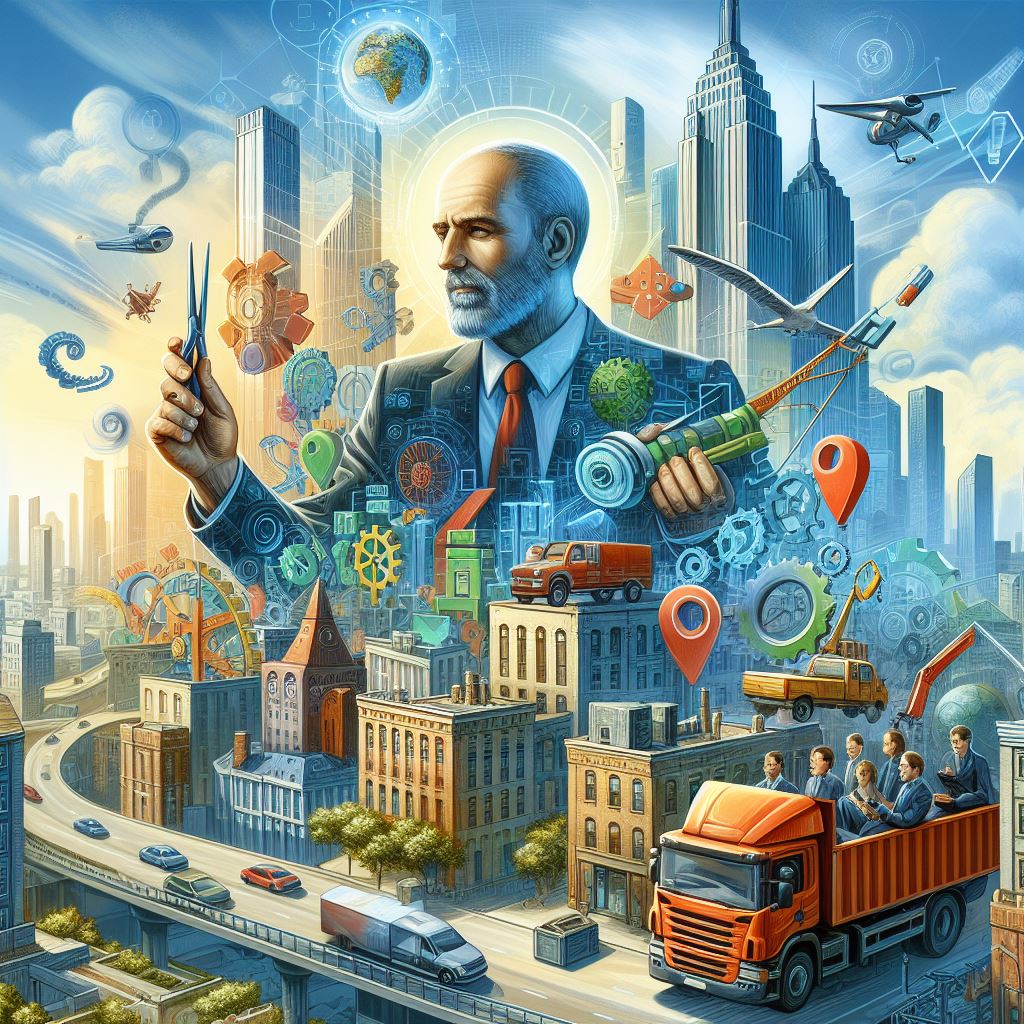
3. Communication
Communication is the cornerstone of human interaction, riding collaboration, expertise, and connection in each private and professional contexts. In the 21st century, communique has evolved past traditional face-to-face interactions to encompass a extensive range of digital platforms and mediums. From electronic mail and social media to video conferencing and instantaneous messaging, the approaches wherein we communicate have extended, imparting both opportunities and demanding situations in building significant connections.
The Art of Effective Communication
Effective communication entails extra than simply conveying information; it’s about developing shared that means and fostering mutual understanding. It calls for readability, empathy, active listening, and flexibility to navigate numerous verbal exchange styles and cultural nuances. In a world wherein attention spans are dwindling and distractions abound, getting to know the artwork of powerful verbal exchange is important for building robust relationships, resolving conflicts, and achieving commonplace desires.
Digital Communication inside the Digital Age
In the digital age, communique has come to be more immediate, reachable, and worldwide than ever earlier than. Social media platforms permit us to connect to friends, own family, and co-workers across continents in actual-time, whilst e-mail and messaging apps enable seamless verbal exchange no matter geographical barriers. However, the prevalence of virtual communication additionally poses challenges which includes misinterpretation, data overload, and privacy worries, highlighting the importance of clean and conscious communique inside the digital realm.
Navigating Digital Etiquette
As virtual communique keeps to proliferate, it is vital to stick to standards of virtual etiquette to make sure respectful and meaningful interactions. This includes working towards netiquette (on line etiquette), respecting privacy and confidentiality, the use of suitable language and tone, and being aware of cultural variations and sensitivities. By adhering to those standards, we will foster positive and efficient digital conversation environments conducive to collaboration and mutual respect.
Communication within the Workplace
Effective communique is in particular essential in the place of business, in which it underpins teamwork, productivity, and organizational success. Whether it’s conveying undertaking updates, soliciting remarks, or negotiating with customers, clean and concise verbal exchange is fundamental to using alignment and attaining shared goals.
4. Collaboration
Collaboration is the method of working together with others to gain a commonplace goal or goal. In brand new interconnected and speedy-paced global, collaboration has turn out to be vital for driving innovation, fostering creativity, and reaching collective achievement. It entails communique, cooperation, and mutual recognize, as individuals come together to leverage their unique competencies, views, and reviews closer to a shared motive.
The Essence of Collaboration
At its core, collaboration is set harnessing the collective intelligence and creativity of a set to clear up complicated issues, generate new thoughts, and obtain shared goals. It calls for active participation, engagement, and a willingness to pay attention and study from others. Collaboration isn’t always just about operating facet by aspect; it is approximately constructing synergy and agree with, where people experience empowered to contribute their ideas and views brazenly and respectfully.
Key Principles of Collaboration
Successful collaboration is built on numerous key standards:
Communication: Open and transparent verbal exchange is critical for effective collaboration, making sure that every one team contributors are at the identical web page and feature a clear information of desires, expectations, and responsibilities.
Cooperation: Collaboration calls for a spirit of cooperation and teamwork, where individuals positioned aside private agendas and egos in desire of the collective appropriate.
Respect: Respecting numerous perspectives, backgrounds, and studies is important for fostering a collaborative tradition wherein every person feels valued and heard.
Flexibility: Collaboration often involves compromise and variation, as individuals work collectively to discover commonplace floor and navigate variations of opinion or method.
Accountability: Each crew member is chargeable for their contributions and commitments, ensuring that everybody pulls their weight and takes ownership of the collective outcome.
Benefits of Collaboration
Collaboration gives severa blessings:
Innovation: Collaborative environments foster creativity and innovation, as diverse views and thoughts integrate to spark new insights and answers.
Efficiency: By leveraging the strengths and know-how of multiple group participants, collaboration can streamline processes, boost up choice-making, and obtain outcomes more correctly.
Learning: Collaboration offers possibilities for non-stop learning and skill improvement, as people percentage knowledge, knowledge, and great practices with each other.
Engagement: Collaborative work environments are more engaging and fulfilling, as people feel linked to a bigger reason and are inspired by the aid and camaraderie in their peers.
Resilience: Teams that collaborate correctly are extra resilient inside the face of demanding situations, as they could draw on a numerous range of talents and views to overcome barriers and adapt to change.
Cultivating a Culture of Collaboration
Building a subculture of collaboration requires leadership, verbal exchange, and a commitment to fostering consider and mutual appreciate amongst group members. Leaders can sell collaboration through placing clear expectations, imparting aid and sources, and spotting and worthwhile collaborative efforts.
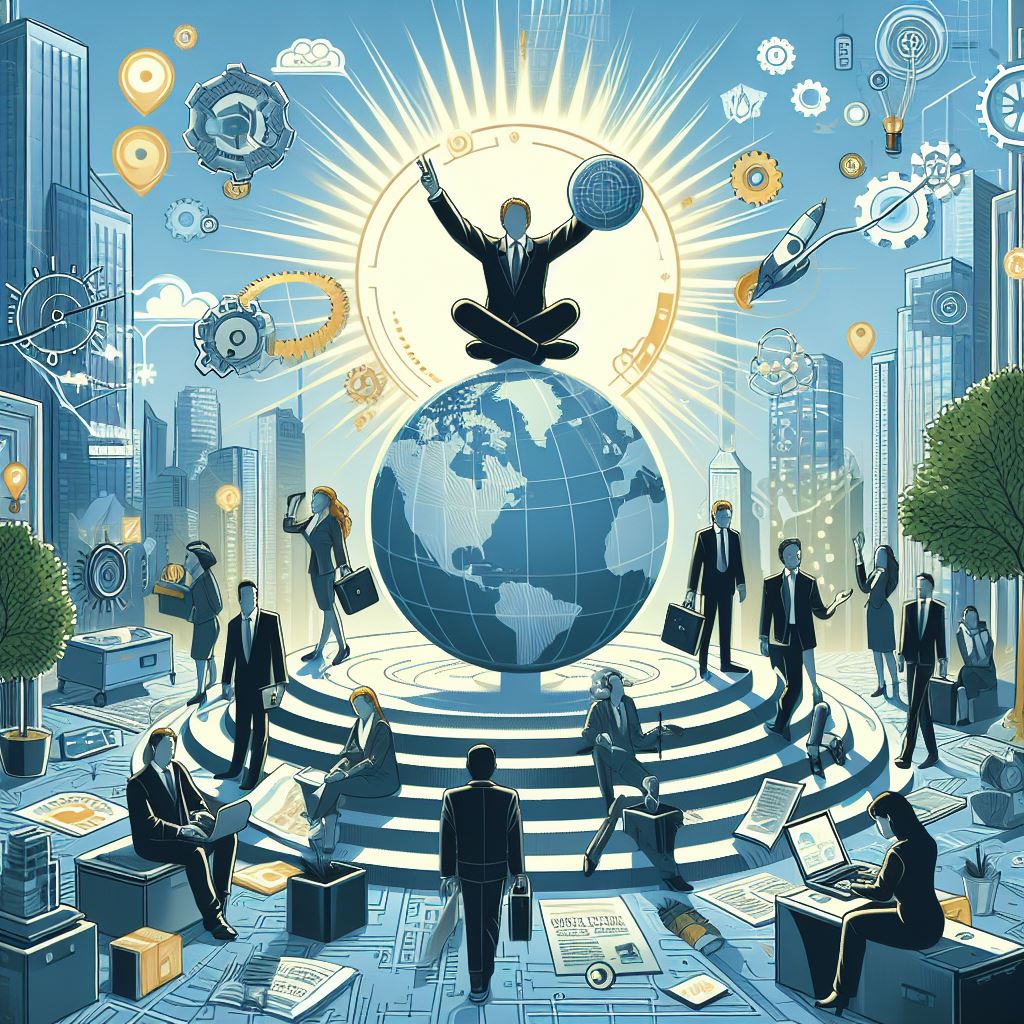
5. Adaptability
Adaptability is the potential to adjust and thrive in response to converting circumstances, environments, and expectations. In the twenty first century, wherein alternate is consistent and unpredictable, adaptability has emerged as a important ability for achievement in both non-public and professional existence. It entails resilience, flexibility, and a willingness to include new challenges and possibilities with an open thoughts and a high-quality attitude.
The Importance of Adaptability
In modern-day speedy-paced world, the potential to adapt is vital for navigating uncertainty and seizing possibilities for boom and innovation. Whether it is responding to technological advancements, market shifts, or unexpected disruptions like the COVID-19 pandemic, people and corporations that could adapt quickly are higher positioned to thrive in the face of adversity.
Cultivating a Growth Mindset
At the heart of adaptability lies a boom mind-set—a notion that challenges are opportunities for learning and improvement rather than barriers to be overcome. Cultivating a growth mindset entails reframing setbacks as possibilities for growth, seeking feedback and constructive complaint, and embracing lifelong getting to know as a pathway to non-public and professional boom. By adopting a boom mindset, people can come to be extra resilient and adaptable inside the face of change.
Flexibility and Resilience
Adaptability encompasses each flexibility and resilience— the capacity to bend with out breaking and bounce back from adversity more potent than earlier than. Flexibility involves being open to new thoughts, techniques, and views, even as resilience involves keeping a effective outlook and persevering within the face of setbacks. Together, flexibility and resilience allow people to navigate uncertainty with self belief and agility, turning challenges into opportunities for boom and innovation.
Adapting inside the Workplace
In the place of business, adaptability is surprisingly valued by way of employers because it allows employees to thrive in dynamic and evolving environments. Whether it’s adapting to new technology, adjustments in industry tendencies, or shifts in organizational priorities, adaptable employees are higher geared up to make a contribution effectively, clear up issues creatively, and power superb exchange. By fostering a lifestyle of adaptability, corporations can live agile and resilient in the face of uncertainty, ultimate competitive and destiny-proofing their personnel.
6. Technological Literacy
Technological literacy is greater than just understanding the way to use the contemporary gadgets or software program—it’s about know-how the fundamental standards of technology and how to leverage it effectively in both private and professional contexts. In the twenty first century, in which generation permeates every issue of our lives, from conversation and trade to training and leisure, technological literacy has turn out to be a foundational skill for fulfillment.
Understanding the Basics
At its middle, technological literacy entails familiarity with basic digital gear and ideas, including working structures, software program packages, and net navigation. It also encompasses an know-how of fundamental technological principles, along with coding, records analysis, and cybersecurity. By studying these fundamentals, people can navigate the virtual landscape with self assurance and harness the energy of era to their advantage.
Adapting to Technological Advances
Technological literacy isn’t static; it requires continuous learning and edition to hold pace with rapid improvements in era. From synthetic intelligence and system learning to blockchain and virtual reality, new technology are constantly reshaping the way we live, paintings, and talk. By staying curious and embracing lifelong getting to know, people can live in advance of the curve and leverage rising technologies to drive innovation and create value.
Bridging the Digital Divide
Technological literacy is likewise important for bridging the digital divide and selling digital inclusion. In a global where get admission to to generation is frequently synonymous with get admission to to opportunity, making sure that each one people have the competencies and assets to navigate the digital landscape is crucial for selling fairness and social mobility. By providing get admission to to digital schooling and training programs, governments, corporations, and organizations can empower individuals from all walks of lifestyles to take part completely within the virtual economic system.
Navigating Digital Ethics and Responsibility
As era will become increasingly more pervasive, technological literacy additionally includes expertise the ethical and societal implications of era use. From privacy concerns and records safety to algorithmic bias and digital addiction, people need to navigate complex ethical dilemmas and make knowledgeable choices approximately how they use and interact with technology. By selling digital literacy and accountable era use, we can construct a more ethical and equitable virtual future for all.
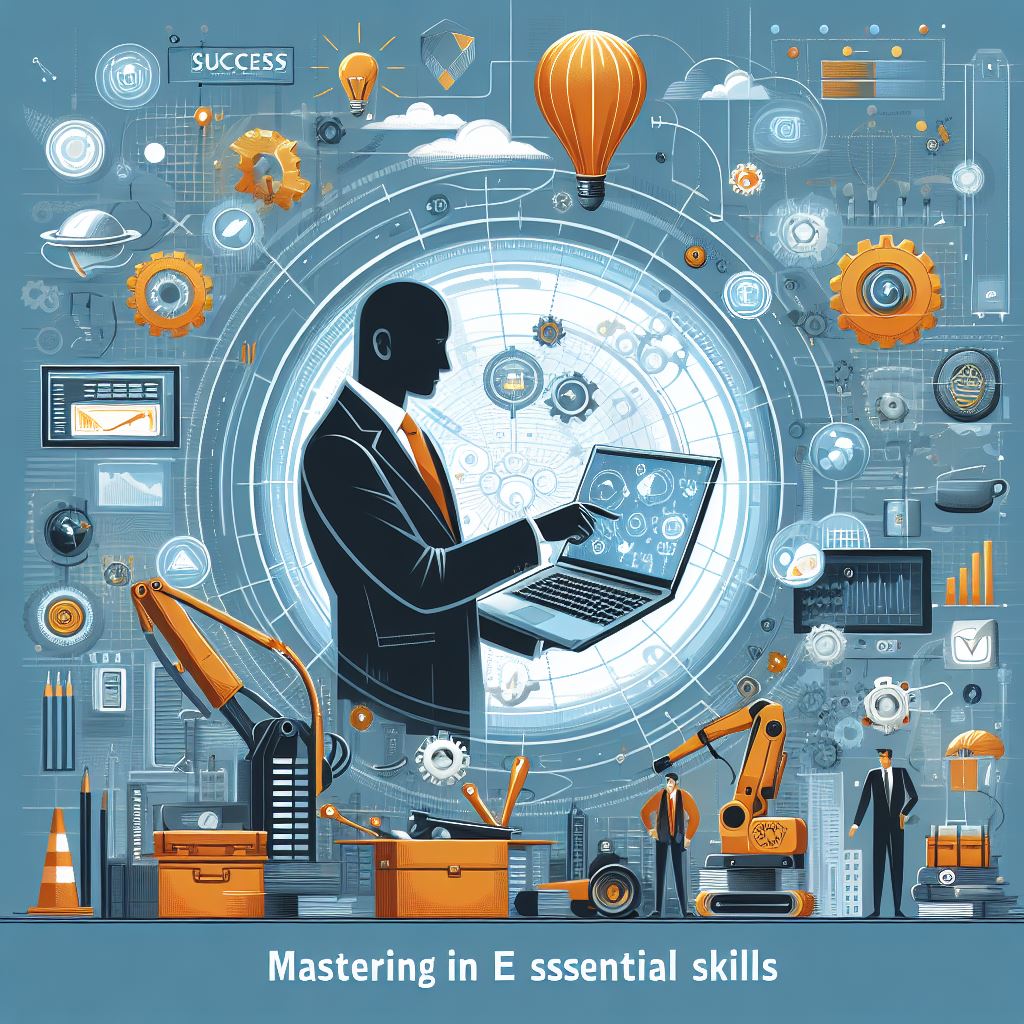
7. Cultural Competence
Cultural competence is the potential to successfully interact and talk with humans from numerous cultural backgrounds. In an increasingly more interconnected and globalized global, cultural competence has grow to be a essential talent for people and companies alike. It entails knowledge and appreciating specific cultural perspectives, norms, and values, and adapting one’s conduct and communique fashion for this reason to foster mutual respect and understanding.
Embracing Diversity
At its center, cultural competence is about embracing diversity and spotting the richness and complexity of human reviews and identities. It includes acknowledging that people from one of a kind cultural background may also have extraordinary methods of questioning, communicating, and hassle-fixing, and valuing those variations as strengths instead of boundaries. By fostering a subculture of inclusivity and appreciate, cultural competence permits people and organizations to harness the entire capacity of variety and thrive in a multicultural global.
Building Cross-Cultural Relationships
Cultural competence is critical for building significant and efficient relationships across cultural limitations. Whether inside the place of work, academia, or regular life, the ability to navigate various cultural contexts with sensitivity and empathy is prime to fostering believe, collaboration, and mutual recognize. By actively listening, seeking to recognize, and valuing cultural differences, individuals can bridge cultural divides and construct sturdy, go-cultural relationships primarily based on agree with and mutual know-how.
Navigating Cultural Differences
Cultural competence additionally entails navigating cultural differences and capacity resources of misunderstanding or battle with grace and sensitivity. This may additionally require being aware of cultural norms and customs, adapting verbal exchange patterns and gestures to align with cultural preferences, and being open to remarks and positive complaint. By approaching intercultural interactions with humility, curiosity, and a willingness to examine, individuals can triumph over cultural boundaries and foster significant connections throughout cultures.
Promoting Diversity and Inclusion
In present day increasingly various and multicultural societies, cultural competence is critical for promoting diversity and inclusion and developing environments where all individuals feel valued and revered. By selling cultural competence via education, education, and organizational policies and practices, corporations, governments, and communities can create greater inclusive and equitable areas in which individuals from all backgrounds can thrive and contribute their precise views and talents.
8. Emotional Intelligence
Emotional intelligence (EI) is the ability to understand, understand, and manipulate each our very own feelings and the feelings of others. In the 21st century, in which interpersonal talents are quite valued, emotional intelligence has emerged as a vital talent for fulfillment in each non-public and professional lifestyle. It includes empathy, self-awareness, powerful verbal exchange, and the capacity to navigate social dynamics with grace and resilience.
Understanding Emotional Intelligence
Emotional intelligence encompasses numerous key components:
Self-awareness: Recognizing and expertise our personal emotions, strengths, weaknesses, and values.
Self-law: Managing and controlling our feelings, impulses, and reactions in a optimistic manner.
Empathy: Understanding and thinking about the emotions, views, and needs of others.
Social abilties: Building and maintaining nice relationships, speaking correctly, and resolving conflicts collaboratively.
The Importance of Emotional Intelligence
Emotional intelligence plays a essential function in numerous factors of lifestyles, from private relationships and mental properly-being to management and teamwork. Individuals with high emotional intelligence are better prepared to navigate social interactions, control pressure and adversity, and build robust, supportive relationships. In the place of business, emotional intelligence is related to higher task overall performance, management effectiveness, and crew concord, making it a valuable asset for career achievement.
Cultivating Emotional Intelligence
Cultivating emotional intelligence includes self-reflection, exercise, and non-stop getting to know. Strategies for developing emotional intelligence include:
Self-reflection: Taking time to mirror on our feelings, reactions, and behavior styles.
Mindfulness: Practicing mindfulness techniques to boom self-consciousness and emotional law.
Active listening: Paying interest to others’ feelings and perspectives and responding empathetically.
Feedback: Seeking and accepting comments from others to gain insights into our strengths and areas for development.
Conflict decision: Developing techniques for resolving conflicts constructively and fostering nice relationships.
Applying Emotional Intelligence
In the administrative center, emotional intelligence is important for effective management, communication, and teamwork. Leaders with excessive emotional intelligence are better able to encourage and encourage their teams, build accept as true with and rapport, and navigate difficult conditions with empathy and resilience. Similarly, personnel with strong emotional intelligence are more adept at participating with colleagues, coping with conflicts, and adapting to change, contributing to a wonderful and productive paintings environment.
9. Lifelong Learning
Lifelong studying is the continuing pursuit of understanding, talents, and private improvement in the course of one’s existence. In the 21st century, wherein trade is consistent and rapid, lifelong learning has become crucial for staying applicable, adapting to new challenges, and thriving in a dynamic and ever-evolving international. It includes a commitment to interest, exploration, and self-improvement, irrespective of age or degree of existence.
The Importance of Lifelong Learning
Lifelong learning is greater than simply acquiring new qualifications or certifications; it is approximately cultivating a mindset of curiosity and intellectual increase. In ultra-modern information-primarily based financial system, where activity roles are constantly evolving and new technology emerge at a speedy tempo, the capacity to learn and adapt is the important thing to staying relevant and competitive. Lifelong studying allows people to pursue new career possibilities, live abreast of industry trends, and include new challenges with confidence and agility.
The Benefits of Lifelong Learning
The blessings of lifelong getting to know are manifold:
Personal increase: Lifelong mastering fosters private increase and improvement, permitting individuals to discover new hobbies, passions, and hobbies, and enhance their lives with new stories and perspectives.
Career development: Lifelong learning enhances employability and career possibilities by means of expanding talent sets, staying up to date on industry trends, and demonstrating a dedication to expert development.
Adaptability: Lifelong novices are greater adaptable and resilient in the face of alternate, able to navigate uncertainty with self-assurance and embody new possibilities for increase and innovation.
Cognitive health: Lifelong gaining knowledge of has been linked to advanced cognitive characteristic, memory retention, and ordinary mental well-being, decreasing the hazard of cognitive decline and age-associated cognitive impairments.
Social connections: Lifelong learning fosters social connections and community engagement, imparting opportunities to hook up with like-minded people, share information and experiences, and build supportive networks.
Cultivating a Lifelong Learning Mindset
Cultivating a lifelong mastering attitude involves numerous key standards:
Curiosity: Stay curious and open-minded, asking questions, looking for new stories, and embracing a spirit of inquiry.
Self-directed mastering: Take possession of your getting to know journey, putting dreams, looking for assets, and pursuing opportunities for growth and improvement.
Persistence: Embrace challenges and setbacks as possibilities for studying and boom, persevering in the face of limitations with willpower and resilience.
Reflection: Take time to reflect to your getting to know reports, assessing your development, figuring out regions for improvement, and adjusting your method as needed.
Continuous improvement: Commit to continuous development and self-improvement, setting apart time for learning and boom on a ordinary basis, and investing to your private and professional development over the long time.
Embracing Lifelong Learning
In end, lifelong mastering is a powerful device for non-public and professional growth, allowing individuals to evolve, thrive, and lead pleasing lives in an ever-changing international. By embracing a mindset of curiosity, exploration, and self-development, we are able to release our complete ability, pursue our passions, and make meaningful contributions to our groups and society at large. So, let’s embrace lifelong getting to know as a lifelong adventure of discovery, increase, and success.
10. Resilience
Resilience is the capability to get better from setbacks, overcome limitations, and thrive in the face of adversity. In trendy speedy-paced and unpredictable international, resilience has come to be a vital ability for navigating challenges, handling pressure, and attaining private and expert success. It entails resilience involves maintaining a superb outlook, adapting to exchange, and drawing on inner power and resources to persevere within the face of adversity.
Understanding Resilience
Resilience isn’t always approximately fending off demanding situations or complication; it’s approximately how we reply to them. Resilient people are capable of keep a feel of desire and optimism, even inside the midst of hard situations. They possess robust coping abilties, hassle-solving talents, and a support community of pals, family, and network sources to help them navigate challenges and conquer obstacles.
Building Resilience
Building resilience is an ongoing process that includes several key concepts:
Self-recognition: Recognize your strengths, weaknesses, and coping mechanisms, and apprehend how you reply to stress and adversity.
Positive wondering: Cultivate a fantastic outlook and awareness on possibilities for increase and learning, even in difficult times.
Adaptability: Embrace trade as a herbal part of lifestyles and develop flexibility and adaptableness to navigate new challenges and occasions.
Connection: Build robust social connections and supportive relationships with pals, own family, and community participants who can provide emotional assist and practical assistance in the course of difficult instances.
Self-care: Prioritize self-care sports such as workout, meditation, and relaxation strategies to manipulate stress and hold emotional well-being.
Problem-fixing: Develop effective trouble-solving abilities and searching for out creative solutions to triumph over limitations and obtain your dreams.
The Benefits of Resilience
The blessings of resilience are manifold:
Emotional well-being: Resilient individuals are higher able to control strain, adjust their feelings, and keep a high-quality outlook, main to advanced mental and emotional nicely-being.
Physical fitness: Resilience is associated with better physical health effects, together with lower fees of chronic contamination, quicker restoration from infection or damage, and improved longevity.
Professional success: Resilient people are higher prepared to address the needs of the place of job, adapt to exchange, and get better from setbacks, leading to more activity satisfaction and profession fulfillment.
Relationships: Resilience strengthens interpersonal relationships and fosters deeper connections with others, as resilient people are higher capable of provide aid and empathy to those round them.
Personal increase: Adversity can be a catalyst for personal boom and transformation, main to elevated self-consciousness, more self-self-belief, and a more potent experience of reason and that means in lifestyles.
Embracing Resilience
In conclusion, resilience is an effective skill that permits people to navigate life’s demanding situations with braveness, strength, and grace. By cultivating resilience, we can construct inner energy, conquer adversity, and thrive in the face of uncertainty. So, allows include resilience as a pathway to private growth, properly-being, and success, and face life’s challenges with resilience and resolution.
In end, mastering critical 21st-century skills is vital for achievement within the virtual age. From crucial thinking and creativity to conversation and collaboration, those talents empower people to navigate the complexities of present-day existence, work, and society. By cultivating those abilities and embracing lifelong learning, individuals can liberate their full potential and thrive inside the twenty first century and beyond.
FAQs:
Q: How can I expand 21st-century abilities?
A: Developing twenty first-century abilities calls for a combination of formal education, realistic revel in, and self-directed getting to know. Consider taking publications or workshops targeted on essential questioning, communique, and different vital abilities. Additionally, are looking for out possibilities to apply these talents in real-world settings, which include internships, volunteer paintings, or organization initiatives.
Q: Are 21st-century talents simplest applicable for sure industries or professions?
A: No, twenty first-century talents are treasured throughout all industries and professions. Whether you are in era, healthcare, education, or any other field, those abilities are vital for success within the current group of workers. Employers more and more prioritize candidates who possess robust communique, problem-fixing, and adaptableness skills, no matter the unique task function.
Q: How can I verify my skill ability in 21st-century abilities?
A: There are diverse gear and checks to be had to help individuals compare their talent in 21st-century abilities. Consider taking on line exams or self-evaluation surveys that measure talents consisting of essential wondering, communique, and emotional intelligence. Additionally, searching for feedback from peers, mentors, or supervisors to advantage insights into regions for development.
Q: What are some sensible strategies for constructing resilience?
A: There are numerous strategies for building resilience, which includes cultivating a nice mind-set, preserving strong social connections, prioritizing self-care activities, developing trouble-fixing talents, and looking for help from others when wished.
Q: Can resilience be discovered, or is it something you’re born with?
A: While some individuals may additionally evidently own greater resilience, resilience is a talent that can be cultivated and bolstered through the years through exercise, self-cognizance, and getting to know from stories.
Q: How can I assist a person else build resilience?
A: You can help someone else’s resilience through imparting empathy and emotional support, encouraging them to are looking for assist while wished, helping them discover and build on their strengths, and fostering an experience of wish and optimism about the future.
Q: What are some common misconceptions approximately resilience?
A: One common misconception is that resilience approach in no way experiencing adversity or hassle. In truth, resilience includes dealing with demanding situations head-on, gaining knowledge of from setbacks, and bouncing back more potent than before.
Q: Is resilience the same as mental longevity?
A: While resilience and intellectual durability proportion a few similarities, including the ability to persevere in the face of adversity, resilience is broader and encompasses emotional, social, and psychological elements further to sheer perseverance.
Q: Can resilience be measured or assessed?
A: There are numerous equipment and checks to be had to measure resilience, even though it could be tough to capture the overall complexity of resilience in a single measure. These checks can also encompass self-document questionnaires, interviews, or observations of behavior in tough situations.

